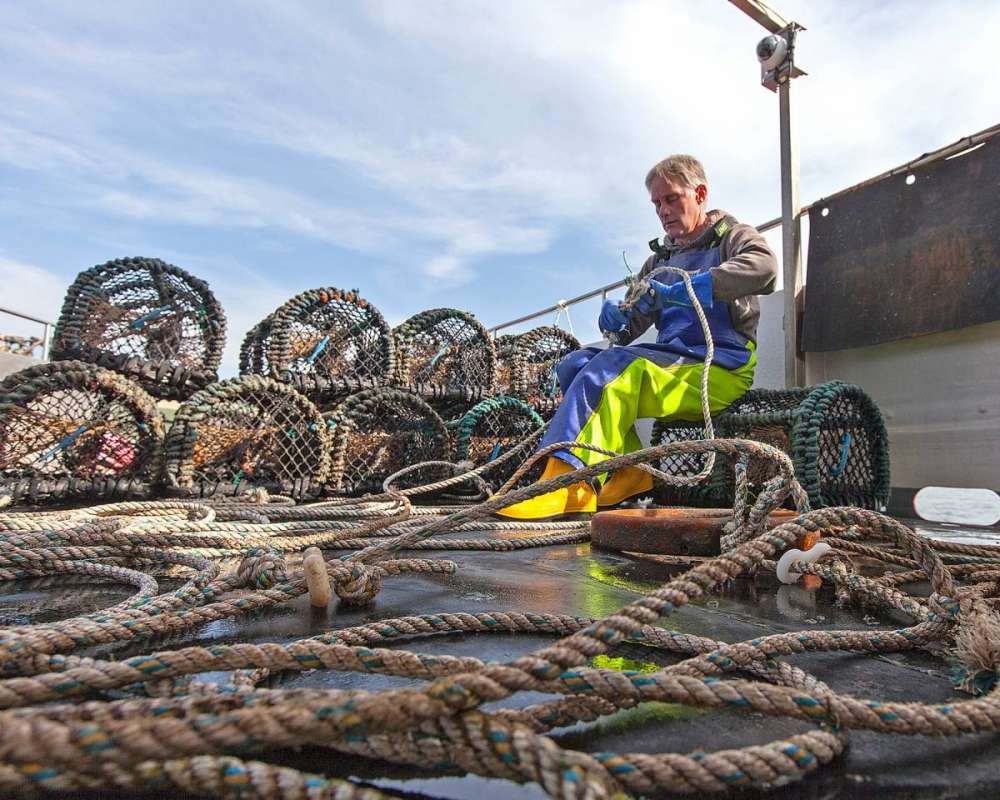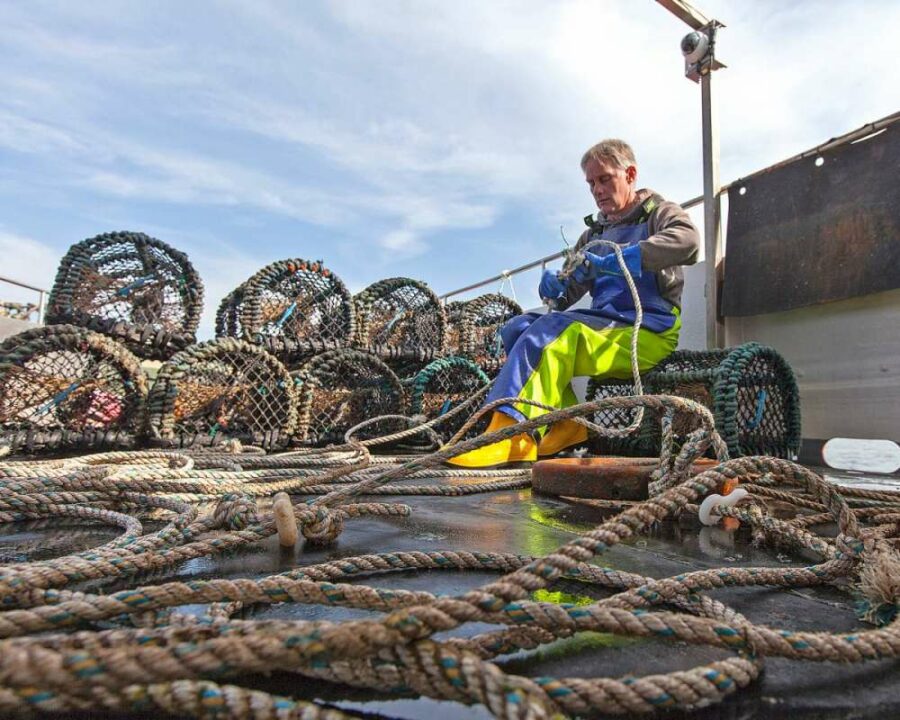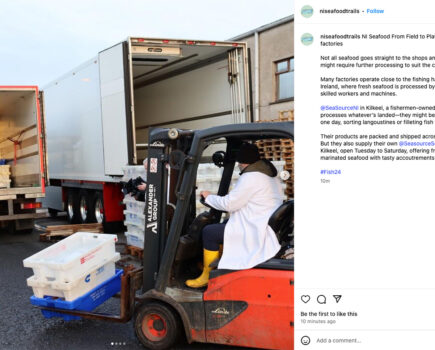Fishermen who work in the waters off the Galloway coast are promoting their sectoral Code of Conduct with a simple message: phone first, reports David Linkie.
Above image: A crewman at work on the Kirkcudbright scalloper Susan Bird FR357, which is skippered by Steven Girgan – both skippers have been staunch supporters of the Code of Conduct over the years.
A Code of Conduct between local scallop and static-gear fishermen has been in place in southwest Scotland for many years. The Code has generally been well-supported and enables maximum access to fishing grounds for both mobile and static-gear fishermen. It is intentionally straightforward, with the focus on good communication, and incidences of conflict have been minimised. However, there is no room for complacency and every effort is being made to raise the profile of the Code at the start of the Irish Sea scallop fishing season.
Chair of Galloway Static Gear Fishermen’s Association, Frazer Scott, says: “All we’re asking is for scallop skippers to give us a call before they start fishing so we can let them know where our gear is. Nobody wants conflict, and it’s in the best interests of all fishermen to work together.”
John Hermse of the Scallop Association says: “It’s important that all sectors of the fishing industry cooperate and that we work together to support best practice. We all want to get on with the job of fishing and it’s important that fishermen from all sectors are united if we are to have the strongest voice in wider marine issues.”

Isle of Whithorn creel skipper Andrew Lochead, preparing static gear on the creel boat Bright Horizon BA 850.
The Code includes a contacts list for most of the fishing vessels working in the Scottish waters off the Galloway coast: hence the ‘phone first’ message.
As well as this, there are five simple points covering key actions on both sides:
● Scallopers will give prior notice of intention to start working in the area to appropriate static gear contacts
● Scallopers will not start working a new area before 8am
● Static gear will be clearly marked with brightly coloured buoys or dhan flags
● Static gear ropes will be kept as short as possible
● Non-fishing static gear will not be stored on the seabed
Alastair McNeill, Chair of South West Inshore Fisheries Group says: “This type of initiative demonstrates the way in which fishermen can work together to develop solutions that are best for their local area. The Code is entirely dependent on the willingness of all parties to commit to it, and it’s in the best interests of all fishermen to do everything possible to ensure its future success.”
Laminated copies of the Code are now widely available at harbours around the Solway, as well as the Isle of Man, Wales and Northern Ireland and online at: ifgs.org.uk and solwayfirthpartnership.co.uk
Copies can also be obtained by contacting Solway Firth Partnership on: 01387 251991.
Catch up on more news and features here…








